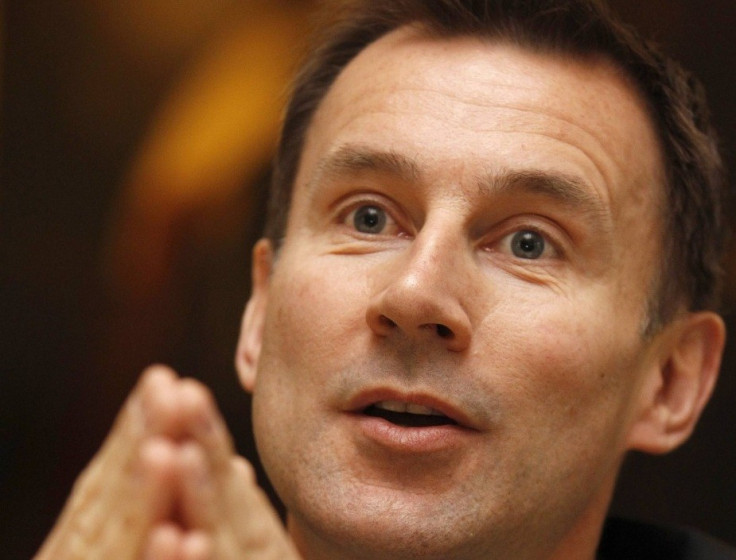Inheritance Tax Limit Frozen to Fund Elderly Care

Health secretary Jeremy Hunt has defended new plans to freeze the inheritance tax threshold to pay for care for the elderly.
Speaking on the BBC's Andrew Marr Show, Hunt described the current situation in which an estimated 30,000-40,000 people every year are forced to sell their homes to fund their care as a "scandal".
"Around 10 percent of us end up paying more than £100,000 in care costs," he said.
Denying that he had backed away from chancellor George Osborne's recent pledge to raise the inheritance tax threshold, Hunt said: "The point of what we're doing is to protect people's inheritance - the worst thing that can happen is, at the most vulnerable point in your life, you lose the thing that you've worked hard for, that you've saved for - your own house."
The plans, which are expected to be announced in parliament tomorrow, involve freezing the inheritance tax threshold at £325,000 in order to cap the amount people have to pay towards their own care at £75,000 before they qualify for state assistance.
There will also be a £650,000 tax freeze for couples, with the measures to come into effect for three years from 2015.
"By setting an upper limit to how much people have to pay, then it makes it possible for insurance companies to offer policies, for people to have options on their pensions, so that anything you have to pay under the cap is covered," said Hunt.
Under the plans, people will be able to hold savings of £123,000 before they fail to qualify for state support, an increase on the previous £23,000 limit, with the reforms to kick in from 2017.
The savings limit is higher than the £100,000 limit recently recommended by the independent Dilnot Commission which was appointed by Prime Minister David Cameron to investigate social care.
However, the £75,000 spending limit is higher than the £35,000 recommended by Dilnot.
"We want to defend people who have done the right thing, who have worked hard and have saved, that is why the cap is higher than that recommended," said Hunt.
"Just as people make provisions for their pensions in their twenties and thirties, so we also need to be a country that prepares for its social care as well."
The shadow care and older people's minister, Liz Kendall, said: "This would be a small step forward for some people who need residential care in five or more years' time.
"But it won't be fair for people with modest homes. Andrew Dilnot recommended a cap on care costs of £35,000 and warned that anything above £50,000 won't provide adequate protection for people with low incomes and low wealth."
The measures could mean that more than 5,000 more families pay inheritance tax to fund the £1 billion package.
The elderly will still have to meet accommodation costs for care home stays, with the amount set to be capped at £12,500 per year.
Once the state steps in, it will pay only for basic care, not necessarily matching a person's existing levels of care.
Hunt said: "That is not saying that we want everyone to pay £75,000, we do not want that, we need to provide a limit so insurance companies can sell options."
© Copyright IBTimes 2025. All rights reserved.






















